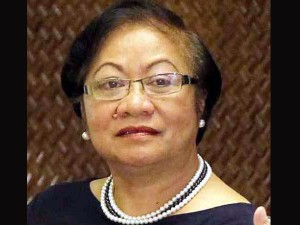97 out of 214 bus firms in Metro no longer use ‘boundary’ system

BALDOZ
Only 97 bus companies out of the 214 operating in Metro Manila have stopped using the so-called boundary system and complied with government orders to pay their drivers and conductors regular wages and other benefits.
These compliant companies run a total of 3,561 bus units and employ 3,927 drivers and 3,632 conductors, according to the Department of Labor and Employment.
Nationwide, the DOLE has issued labor standards compliance certificates (LSCCs) to a total of 517 bus companies in 13 regions, which operate a total of 9,063 units and have 10,650 drivers and 10,035 conductors on their payroll.
The old way
Moves to scrap the boundary system among buses gained momentum in early 2012, with the Metropolitan Manila Development Authority among the strongest supporters. DOLE started requiring bus companies to pay regular wages in July that year.
Under the old system, a bus driver remits to the company a fixed amount (the “boundary”) after the shift, and whatever is left becomes the driver’s take-home pay.
The practice, which went on for decades and continues to be used in the jeepney and taxi sectors, forced drivers to be competitive and take risks, committing traffic violations by speeding, recklessly swerving, or overstaying at bus stops, just to take in as many passengers as possible.
“As of Oct. 31, the DOLE’s 16 regional offices have issued labor standards compliance certificates (LSCCs) to 517 bus companies as proof of their compliance with Department Order No. 118-12. These companies are now giving regular pay and other mandatory benefits to their drivers and conductors who are manning these buses,” Labor Secretary Rosalinda Baldoz said.
The secretary was citing figures from the National Wages and Productivity Commission.
Baldoz explained that the objective of the department order was to ensure the safety not only of the drivers and conductors, but also of the passengers and pedestrians.
The order called for a fixed, performance-based pay scheme and the provision of social security and welfare benefits to bus drivers and conductors.
The LSCC is now a requirement for bus companies applying for franchises or seeking their renewal in the Land Transportation Franchising and Regulatory Board.
DOLE spokesperson Nicon Fameronag said a total of 214 bus companies currently operate in the National Capital Region.
Outside NCR
In the Cordillera Administrative Region, 76 bus companies with 251 bus units and 266 drivers and 225 conductors have been issued LSCCs.
In Cagayan Valley, 131 companies with 261 buses employing the same number of drivers and conductors secured the certificates.
LSCCs have also been issued to 34 bus companies operating 1,049 buses with 1,340 drivers and 1,371 conductors in Central Luzon; and 22 companies having 1,221 buses manned by 11,383 conductors and 1,359 drivers in the Calabarzon region.
In the Bicol region, the DOLE regional office has awarded LSCCs to 68 bus companies with 385 bus units and which employ 501 drivers and 379 conductors.
In Region 6, four PUBs with 733 buses manned by 2,139 drivers and 1,026 conductors have also been issued LSSCs.
In Region 7, a bus company with two buses manned by two drivers and two conductors have received their LSCCs.
In Region 9, three bus companies, with 59 buses manned by 59 drivers and 59 conductors, have also received their LSCCs, while in Region 10, three bus companies with 285 buses and which employ 301 drivers and 307 conductors now have LSCCs.
In Region 11, the DOLE regional office has awarded LSCCs to 30 bus companies, which operate 711 bus units and employ 796 drivers and 865 conductors. In Region 12, a bus company with 159 buses and employs 159 drivers and 159 conductors have secured the required LSCC.
Baldoz said more companies will be given the LSCCs before the end of the year.
“The DOLE regional offices are continually assisting bus companies with pending application for LSCCs, especially in developing their fixed and performance-based compensation scheme,” Baldoz said.